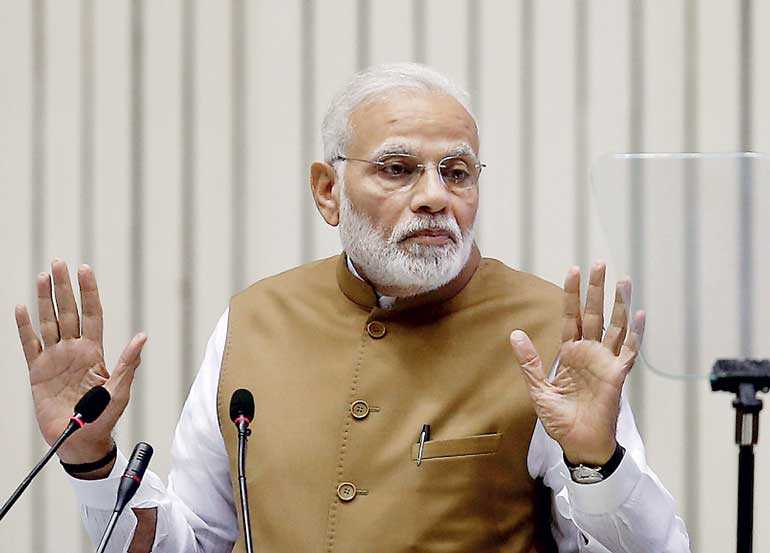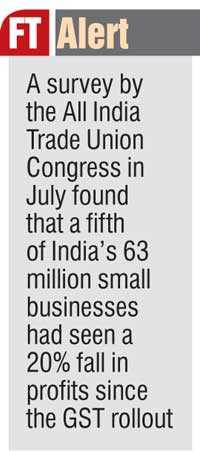Friday Feb 20, 2026
Friday Feb 20, 2026
Monday, 5 November 2018 00:00 - - {{hitsCtrl.values.hits}}

FILE PHOTO: India's Prime Minister Narendra Modi gestures as he addresses the gathering during the 'Global Mobility Summit' in New Delhi, India - REUTERS
NEW DELHI (Reuters) - Prime Minister Narendra Modi on Friday unveiled a dozen measures to support small- and medium-sized businesses, as he aims to woo a large voting bloc ahead of a national election next year.
The move comes after a unified Goods and Services Tax (GST), launched more than a year ago, drove many small enterprises out of business and put hundreds of thousands out of work, handing a big political weapon to opposition parties.
The so-called micro, small and medium enterprise (MSME) sector is the second-biggest job provider in India after farming, Modi said.
“I believe that small enterprises will give a new form and shape to the country’s industrial revolution and build the foundation of technology-driven clean business,” Modi said at an event in New Delhi starting a 100-day “support and outreach” program for small businesses.
The decisions include approving loan requests of up to 10 million rupees ($138,000) within 59 minutes, providing discounts on new loans for GST-registered businesses, increasing mandatory purchases of products from MSMEs by state-run companies, making labour-law compliances easier, reducing government inspections of factories and simplifying environmental protection norms.
The fast-track loan initiative is likely to be led by government-run lenders such as State Bank of India and Punjab National Bank.
“These are very good steps and will address the problem of funds for the sector,” said S.C. Ralhan, president of a local manufacturers’ body in the northern district of Ludhiana, known for its garments, auto parts and hand-tools factories.
The announcement is a counter to overtures by the main opposition Congress party to small businesses, which account for 32% of the economy and employ 111 million people.
Congress leader Rahul Gandhi said in August he would seek to shift the focus of the country’s economic policy towards supporting small and medium-sized firms if the opposition won power in next year’s election.
The GST, India’s biggest ever tax reform, was aimed at replacing more than a dozen federal and state levies. It has improved economic efficiency but critics say the complexities of the new regime have hit small enterprises hard, denting Modi’s popularity.
Five states elect their assemblies in coming weeks, ahead of a general election in which Modi’s Bharatiya Janata Party is projected to lose seats in parliament but still emerge as the single biggest party.
A survey by the All India Trade Union Congress in July found that a fifth of India’s 63 million small businesses had seen a 20% fall in profits since the GST rollout.